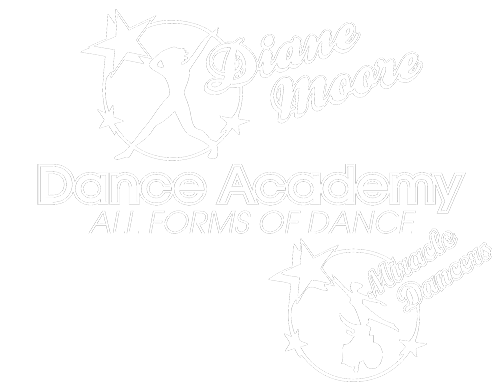Diane Moore Dance Academy offers all styles of dance and performing arts including ballet, pointe’, tap, jazz, clogging, hip-hop, lyrical, modern, improv, hula, voice and vocal performances, musical theatre, Performing Arts Troupe and special needs classes.
These classes are for all levels of dance for ages 3 to adult. In addition, we teach solos, duets, trios, and small groups. Our students perform at many venues in Louisville, The Kentucky State Fair, and entertain with many spring and Christmas programs throughout our community.
Our Miracle Dancers group is comprised of students with many types of special needs or disabiliites. Our instructors work with students in dance choreography or vocals. They perform each year on the WHAS Crusade From Children along with the Kentucky State Fair. The Miracle Dancers are largely supported through donations of their 501(c)(3) Non-Profit Organization called the Miracle Dancer Scholarship Foundation. Students may apply for assistance.
Summer Class and Camp Registrations Now Open
Summer Classes Tuesday & Thursday in July 2025
Class Dates: July 8, 10, 15, 17, 22, 24
Vocal & Drama Summer Intensive Camp
Ages: 5-13
Camp Dates: June 23rd-28th
Camp Times: Ages 5-8 from 4PM-7PM Ages 9-13 from 5PM-8PM
Camp Location: Diane Moore Dance Academy 9013 Galene Drive, Jeffersontown, KY 40299
Performance Date: Saturday, June 28th
Performance Location: Mike Linnig’s Restaurant Pavilion
Click the Registration button below for more information and to register.
There are no upcoming events to display at this time.

Creative Movement is a fun class designed for the child who loves dance and movement, but may not be ready for a structured ballet/tap class. Basic ballet and jazz are fused into fun activities, games and themes with the goal of teaching young children rhythm, balance and movement. this class is designed for 2-3 year olds with lots of energy!
Ballet is a classical theatrical art form requiring grace and precision as well as formalized steps, gestures and poses. Music and scenery are incorporated to convey a story, theme or atmosphere.
Pointe’ work describes performing steps while on the tips of the toes using a special hard shoe. This form of dance is typically reserved for more advanced and technically strong dancers over the age of twelve.
Jazz dance is a form of dance that is matched to the rhythms and techniques of jazz music. Jazz dance styles include using feet, arm and hand positions, isolations (head, shoulder, hips), timing, shape and movements including body rolls, jazz walks and kicks.
Lyrical dance is a style that blends elements of ballet and jazz. Movements incorporate flexibility, fluidity, turns, leaps and balance. While performing, a lyrical dancer will express the feeling of the music through their movements.
Modern dance is a form of dance which focuses on the expression of inner emotions, using a free-flowing, interpretive style, rather than following the rigid rules characteristic of many dance disciplines.
Musical theatre is a form of dance that is rooted in the deep history of Broadway Musicals. This style of dance includes elements from other types of dance, especially ballet, tap and jazz as well as acting and/or singing. A main focus of musical theatre is musical interpretation and performance.
Our Miracle Dancer group is comprised of students with many types of special needs or disabilities. This group of children through adults works on flexibility, rhythm and exciting dance moves that help bring forth the talent and beauty of each dancer. Our instructors work with students in dance choreography and/or vocals to build self esteem.
Tap is a type of dance characterized by the sound of metal taps attached to the heel and toe of a shoe. These taps create syncopated beats by striking the floor or other hard surface. Due to its percussive nature, tap can be considered a musical form as well as a dance form.
The purpose of singing is to express deeply felt, authentic emotions through various kinds of music. Somatic Voice Works, or the Lovetri Method, is based upon vocal science and medicine as well as traditional vocal training. It is meant to draw the mind of the singer into the physical process of making sound. The vocal mechanism needs to be strengthened and made flexible in order to work properly and produce a healthy, free sound.